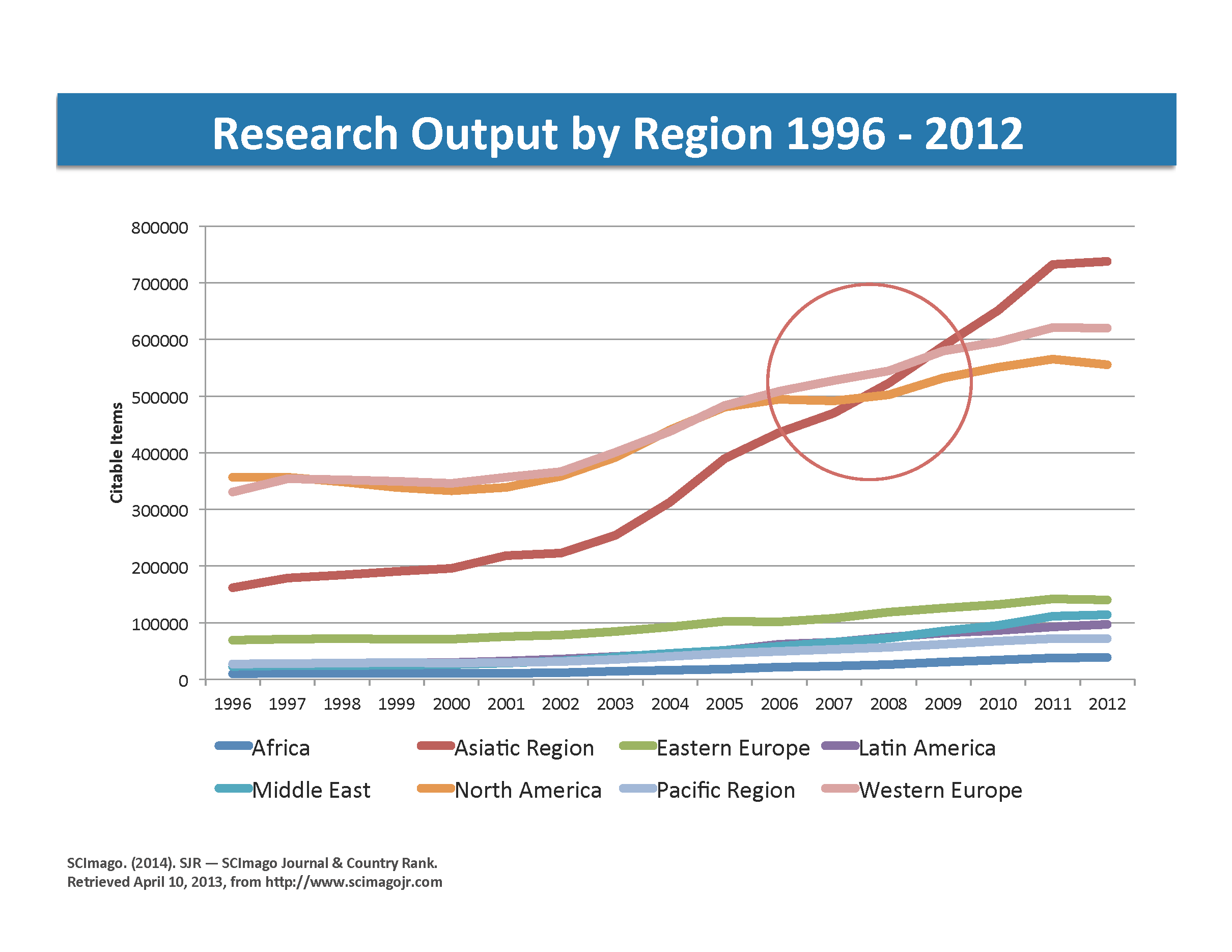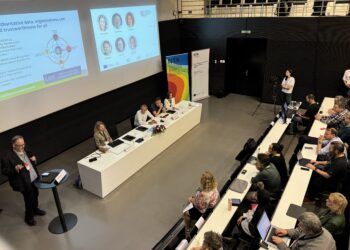
Publishers have a role to play in simplifying the life of a researcher at an early stage, right as they begin to write a paper and prepare a manuscript for submission. A new initiative from the American Chemical Society (ACS) is a good example of where we all should be looking to act.
First, though, some context.
When I think of the players in publishing, I often smile, recalling the Monty Python sketch of the Four Yorkshiremen. Here we have researchers, institutions, funders and publishers all effectively saying:
- “… aye, In them days, we’d a’ been glad to have the price of a cup o’ tea.
- A cup ‘cold tea.
- Without milk or sugar.
- Or tea!
- In a filthy, cracked cup.
- We never used to have a cup. We used to have to drink out of a rolled up newspaper.
- The best we could manage was to suck on a piece of damp cloth.
- But you know, we were happy in those days, though we were poor.
- Aye. Because we were poor. My old Dad used to say to me, “Money doesn’t buy you happiness.”
- ‘E was right. I was happier then and I had nothin’. We used to live in this tiny old house, with great big holes in the roof.
- House? You were lucky to have a house! We used to live in one room, all twenty-six of us, no furniture. Half the floor was missing; we were all huddled together in one corner for fear of falling!
- You were lucky to have a room! We used to have to live in a corridor!
- Oh we used to dream of livin’ in a corridor! Woulda’ been a palace to us. We used to live in an old water tank on a rubbish tip. We got woken up every morning by having a load of rotting fish dumped all over us! House!? Hmph.”
Let’s just look at the plight of the researcher. At heart, answering the question, “what do researchers want?” appears to be quite simple. From those in mathematics to tumor immunology, from gerontology to Melville studies, the answer is “to do my research in the best way possible.”
Dig a little deeper of course, and there is an intricate web of complexity that underlies this answer. Every field possesses its own culture. Differences in academic culture across fields of study are there for us all to see. Every field and even every discipline has a language. A conversation, or article is laden with acronyms, and jargon often so complicated that even those with similar backgrounds may find it difficult to comprehend. As a publisher across many disciplines over the years, I see how those in different fields not only have a language of their own, but also are stylistically different in their approach to those outside their world. In fact, that is why every evolutionary biologist feels compelled to wear Birkenstock sandals.
Researchers do have commonalities. A passion for their work, and a sense that being put in a position where they are free from constraint to pursue their line of enquiry without outside influence are themes that run across all areas, regardless of how well funded that area may be. A career in research is not about making money. It is not about achieving a place of power. Researchers are certainly not immune to these forces, especially in well-funded disciplines, but there is commonality in a desire to understand, dig, discover, apply intellectual rigor and reveal truths.
All this may seem somewhat irrelevant to the publishing world, but in fact, it is here that we need to be focusing harder than we have ever focused before. The researcher does not sit alone in their ivory tower. That ivory tower is likely to be an institution, perhaps a top rank, wealthy university, or indeed a community college with virtually no worldly presence. Resources for every aspect of research life appear to be scarcer than ever before. I am not saying that in some areas, especially when there are significant corporate interests such as the drug industry involved, that money is scarce uniformly. It is unfortunately true that in the US, funding for research is not the government’s top priority. Let’s just take mathematical sciences, the world in which I reside. The National Science Foundation (NSF) Division of Mathematical Sciences did not do well in the final FY 2013 budget allocation, receiving a 7.8% cut from FY 2012, going from $238m to $219m. In China, and India, there are opposite funding trends at work.
Resources of course stem not only from the institution and funder,(for those fields with funding), but also from the cultural and intellectual conditions that surround academic work. Part of this world is the publishing world. Researchers are also authors, of journal articles and books. This output is increasing as this graph from Scimago illustrates well: (borrowed from a talk by Jay Flynn of Wiley at the 2014 American Association of Publishers PSP conference in Washington DC 2014 recently).
In the same breath, there are apparent roadblocks faced by researchers. The same institutions that support them are also strapped for cash when it comes to purchasing content from publishers. Funders and institutions have become involved, partly because they want to know what happens to their funds by way of published research, but also in an effort to make content more available. And so there is open access (OA) in a variety of guises.
Yet, to be clear OA is in some ways a red herring.Yes, OA means that an article is freely available to all upon publication, yet, as a researcher you quickly realize that the burden has now been placed upon you. If you have the funds, fine, of you do not, well then. I am not trying to brush off OA as a trivial event. Clearly the debate rages, and will rage, and indeed has moved publishers, institutions, funders and researchers to a place where we must consider the future of the publishing business model. What really matters to a researcher though is not open access. It is the ability to do their work and be heard, regardless of business model. It is up to publishers to innovate, funders, government and institutions to support the research endeavor, which includes publication. New business models are needed.
Publishers and societies also need to think carefully how to support researchers in other ways. A fascinating example may be seen in the activities of the American Chemical Society (ACS), who have recently launched ACS ChemWorx. This is an effort to interact directly with the chemistry research community they serve “…allowing researchers to focus on what matters most, the science”. I talked with Sarah Tegen, VP, Global Editorial & Author Services at ACS, who leads this initiative:
What authors really value is a fast, streamlined publications process, from manuscript preparation through peer review and production. ACS ChemWorx pulls existing resources together in a new way that facilitates these goals.
Taking a look at ACS ChemWorx in more detail myself, it appears to be a valuable resource, allowing researchers to import, manage and search existing libraries, and streamline literature searches. It directly provides tools for manuscript preparation; such things as PDF annotation, citation creation, managing proofs. On top of that there is a social aspect, allowing for collaboration and sharing of projects and files. This seems to represent an evolution of what most of us in publishing provide in a more limited way as author resources that are not as useful, nor used as we would like them to be. And did I mention that it is a free resource?
Discussion
2 Thoughts on "The Four Yorkshiremen: What Do Researchers Want?"
Librarians have begun to think about supporting scholars in their research and writing in new ways. A good overview of these developments was provided in an ACRL report titled “Establishing a Research Agenda for Scholarly Communication: A Call for Community Engagement” in November 2007. Particularly interesting was the way librarians were inserting themselves much earlier in the process upstream. The report proposes that new communication practices like “open notebook science” and “open data” might be at least as valuable or even more so in advancing scholarly research, and that “libraries should adopt a stronger role that more directly advances scholarly research beyond satisfying tenure and promotion practices” for which traditional publications are needed. Staking a claim to this new territory of ”informal scholarly communications,” the report asks: “How can librarians better characterize and measure the contributions of these informal communications, and thereby make wise decisions about organized access to them?” The report observes that traditional “publications are the minutes” of scholarship while “the presentations, preprints and letters and other informal communications are the conversations of science,” and it argues that there is a role for libraries in monitoring and preserving this stream of prepublication communication.



